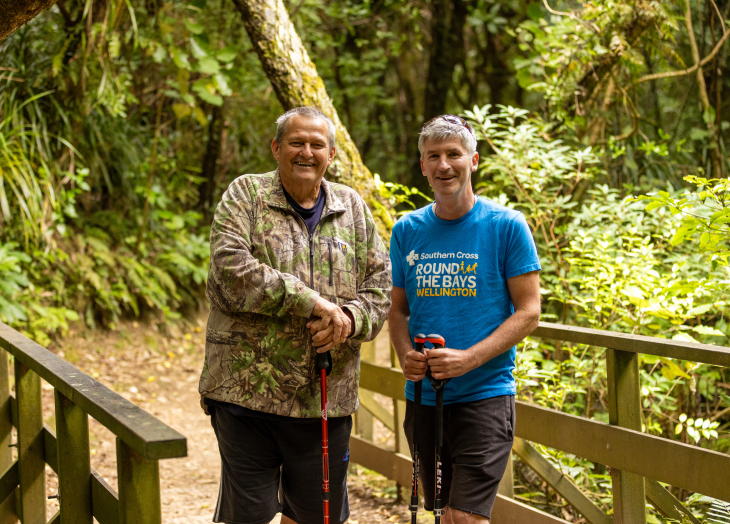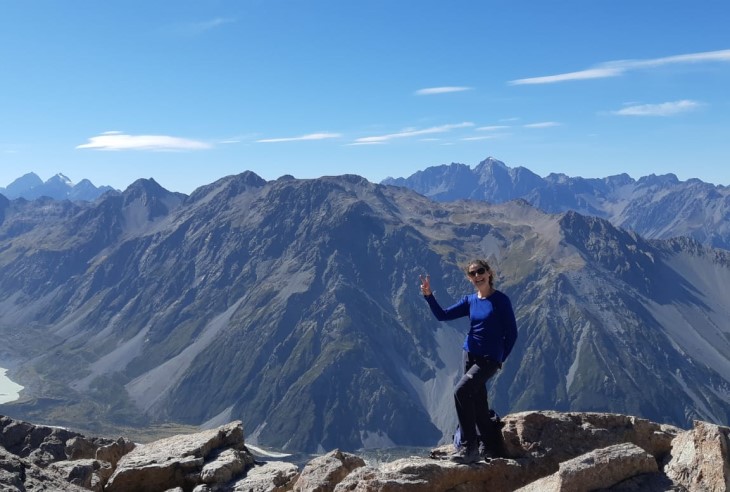Andy’s story: From rescuer to being rescued
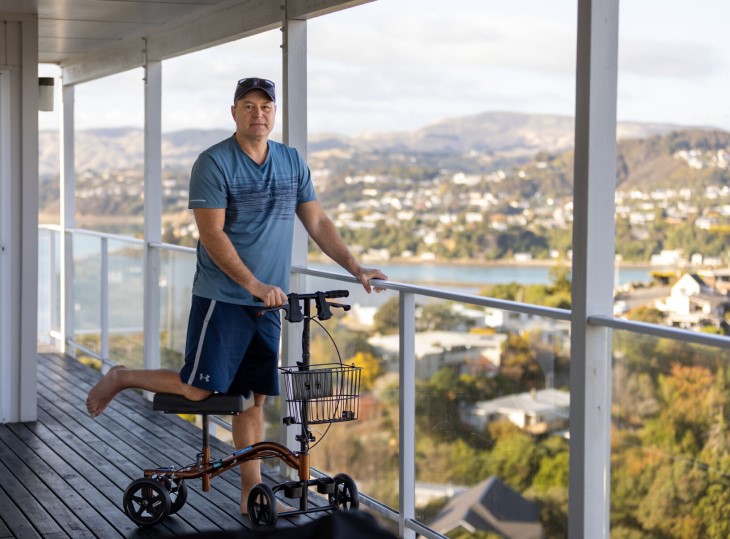
Experienced hunter Andy Pedley had to be rescued by helicopter after suffering a serious injury in the bush – proving accidents can happen to anyone, at any time. Having the right communication devices helped him to be swiftly rescued.
Andy Pedley is the last person you’d expect to see airlifted out of the bush with a hunting injury.
The 51-year-old has decades of hunting experience and was involved in Land Search and Rescue for around six years.
He has racked up most of his 30 years of hunting experience in the Fiordland National Park, run his own guiding company in the area, and at one stage was a bush instructor for the Mountain Safety Council in Queenstown.
With that background, Andy never thought he’d be the one needing saving from those familiar surrounds.
“As far as experience goes, I would say I almost specialise in Fiordland,” Andy says.
“That would be my strongest area.”
But during Easter this year, Andy was out deer hunting during the roar – which signals the beginning of the hunting season – when he slipped on a log near Westies Hut, badly breaking his leg.
His right foot rolled forward on the log and slipped into a dip in the ground below, becoming jammed by the log behind.
The result was two broken bones, and subsequent surgery in which 14 screws were inserted, as well as a metal plate and a rod “that looks a bit like a kebab skewer”.
“It all happened so quickly,” Andy says.
“To be honest, the first thing I thought was that I’d just rolled my ankle. But it wasn’t until I sat back on the log, and I noticed it was just flopping around, that I thought, ‘Nah, it’s buggered’.”
The injury required Andy to be airlifted out to Invercargill Hospital. He later underwent surgery at Queenstown Hospital.
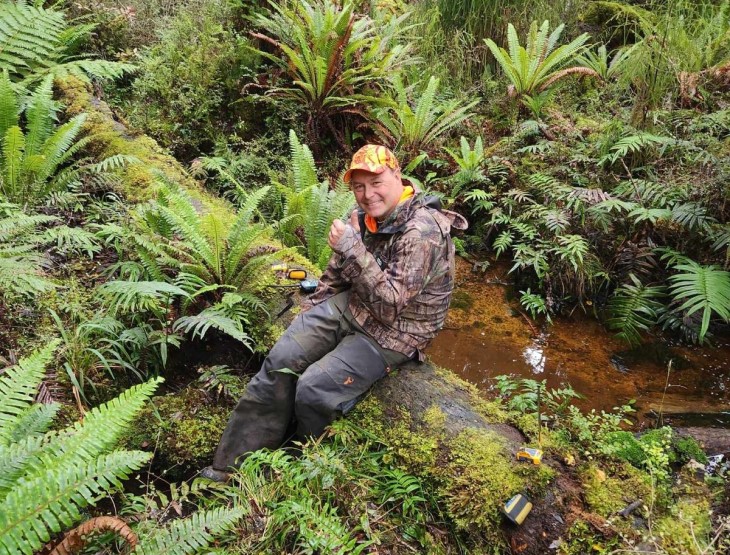
Communication devices save the day
Andy says his accident shows injuries can happen to even the most experienced hunters. He says his slip happened while he and his friend were walking along a track and weren’t moving as slowly and carefully as they would have been if they were hunting.
Not surprisingly, with his years of search and rescue training, Andy had come prepared.
Both he and his friend were carrying Emergency Position-Indicating Radio Beacons (EPIRBs) and marine radios, and Andy had also recently activated the emergency SOS function on his new iPhone 15.
They both activated their beacons, while Andy’s friend headed to the coastline and managed to contact the marine radio service in Bluff. His text conversation with emergency services was viewed by his emergency contacts, who were able to verify Andy was in trouble.
The result was Andy being winched out and on his way to Invercargill Hospital within the hour.
“With all the people I’ve guided, I never thought I’d actually have to set off an EPIRB for myself,” he says.
“It was just one of those one-in-a-million things – tiny little slip, in the hole, forward momentum, snap.”
The dangers of hunting
The data shows Andy is not alone in coming unstuck while out hunting.
Between 2019 and 2023, ACC accepted more than 8,000 hunting-related injury claims. Almost 700 of these claims occurred in the Otago region.
The total cost of supporting people to recover from hunting-related injuries was more than $23 million. Last year, this cost was $6.4m – the highest in the past five years.
The data shows most injuries are soft tissue, like strains and sprains.
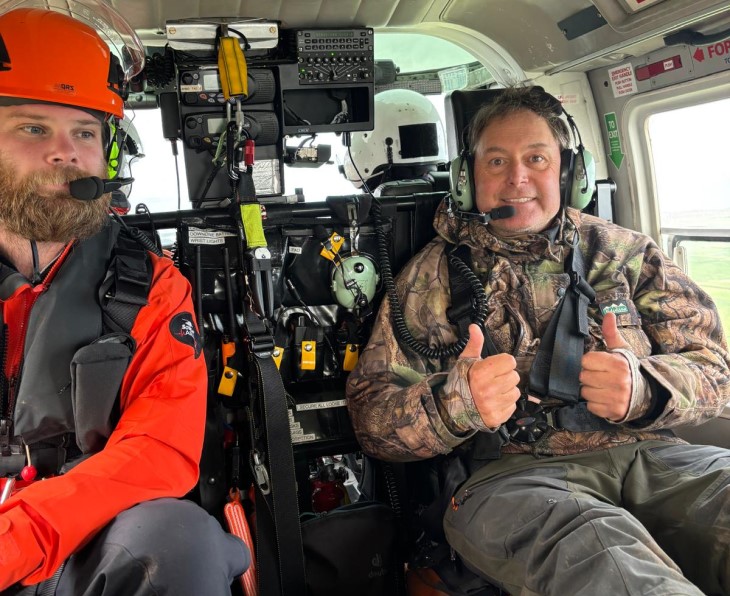
ACC provides boost to recovery
Andy says ACC has played a leading role in his recovery.
His injury claim was accepted within 24 hours, and we funded the cost of surgery, transport to and from medical appointments, and a flight back to Wellington – where he now lives after recently moving from Queenstown.
Andy also received a home and community support needs assessment.
He says he’s received excellent support and describes ACC as a service “that’s pretty amazing”.
“The rest of the world doesn’t have a service like this – you’ve got to rely on your private insurance,” he says.
“And if they don’t come back to you for weeks, you’re pretty much stuffed.”
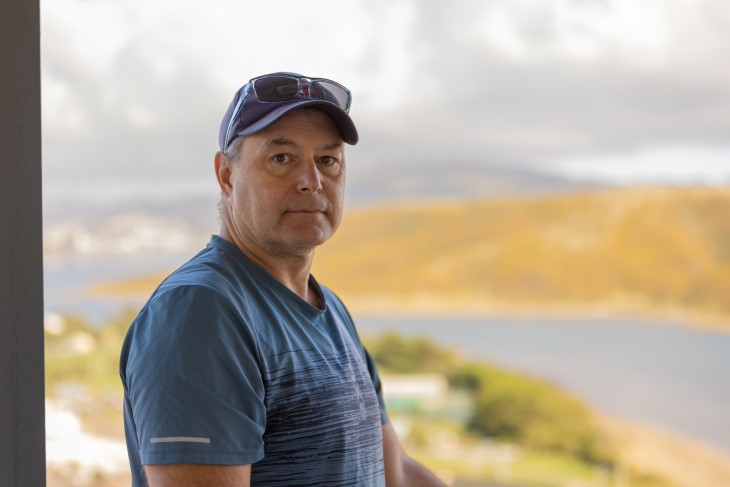
The key to being rescued
Andy says having as much location-signalling equipment as possible is the key to being rescued quickly if you get injured in the outdoors.
Marine radios can enable contact with search-and-rescue services – if in a suitable location – and can also help people in hunting groups contact each other if they become separated, he says.
He was also fortunate to have an emergency SOS function on his mobile phone – meaning he could contact emergency services even though he was offline with no wi-fi signal.
Andy says anyone in the outdoors should carry an EPIRB, which is the size of a matchbox, and tell other people where they’re going.
“You want to get rescued as fast as possible,” he says.
“The longer you’re out there, the worse things go.”
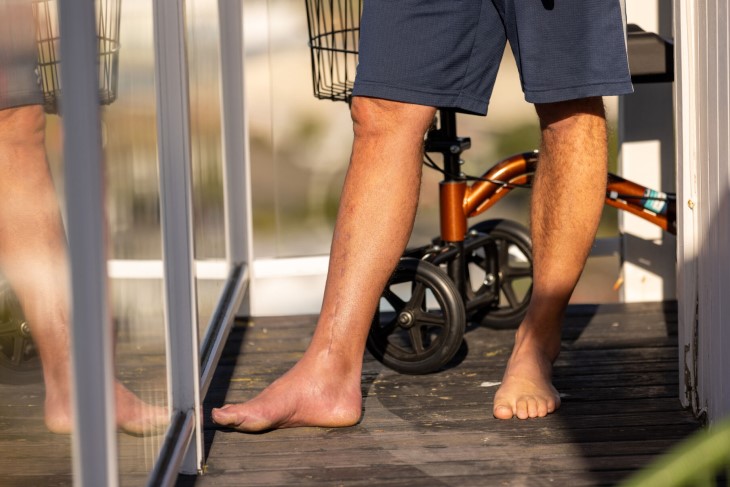
‘Have a hmmm’ to avoid injury
Ask yourself, would it be easy for your whānau to stop what they’re doing, to take care of you? How would it make them feel to see you in pain? If you get hurt, who gets harmed... whānau, friends, work mates and team mates? Stop and have a hmmm.



